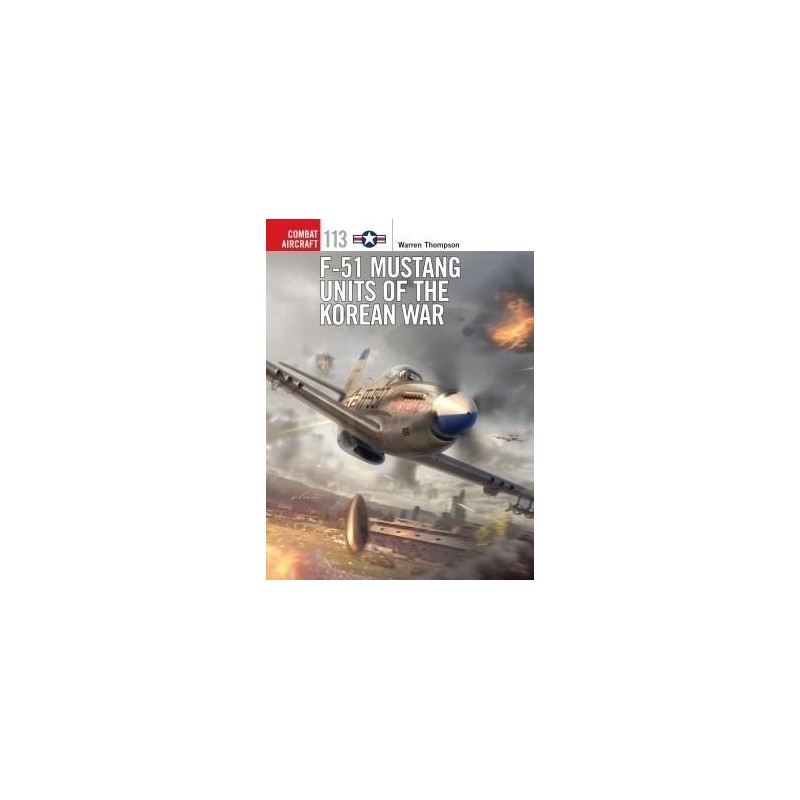
F-51 MUSTANG UNITS OF THE KOREAN WAR.
By the time the Korean War erupted, the F-51 Mustang was seen as obsolete, but that view quickly changed when the USAF rushed 145 of them to the theatre in late 1950. They had the endurance to attack targets in Korea from bases in Japan, where the modern F-86 fighters and other jets did not. Rather than the interceptor and escort fighter roles the Mustang had performed during World War 2, in the Korean War they were assigned to ground attack missions - striking at communist troop columns advancing south. This is the chronicle of the Mustang units that fought in the Korean War, detailing the type's involvement in a series of intense actions, its successes and its considerable losses. Drawing on meticulous research and gripping first-hand accounts from aircrew, this book explains how the faithful Mustang was able to roll back the years, fight, and prove itself in a new era of aerial warfare.
Contents.
- The very early days of the war with a make-shift unit out of Clark Air Base and the arrival of 145 Mustangs from the states
- Mustang numbers become large enough to slow down the North Korean advances on the Pusan Perimeter
- Breakout from Pusan and the Inchon Landing
- The war becomes stagnant and the Mustangs range all the way up to the Yalu River hunting for targets.
- The South Africans attach their F-51 squadron to the 18th Fighter-Bomber Wing.
- USAF winds down its Mustang operations and slowly converts the squadrons over to new F-86F fighter-bombers
- Republic of Korea Mustang operations in the war
- Appendices

